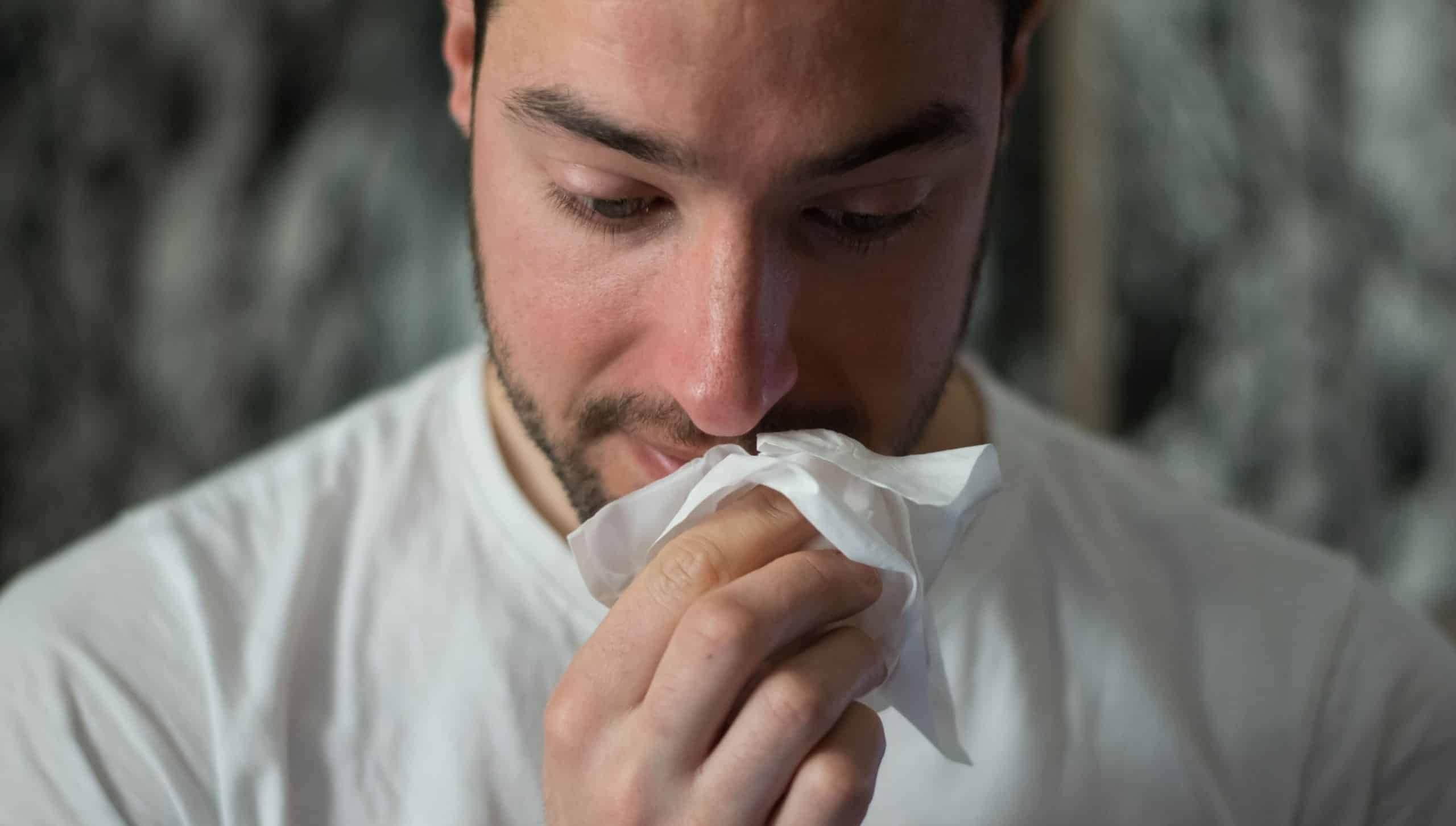
Prior to March 2020, the wearing of face masks was largely limited to the surgical setting. Since the arrival of the COVID-19 pandemic, however, the use of such garments is a commonplace, accepted, and sometimes legally required, feature of daily life. While masks were no longer officially obligated, although still recommended in healthcare settings and other such places, in the UK for most of 2022,1 the rise in COVID-19 and influenza cases over the recent winter months has triggered Professor Susan Hopkins, Chief Medical Adviser at the UK Health Security Agency (UKHSA – which replaced Public Health England in April 2021 and is responsible for health protection and infectious disease capacity across England), to advise parents of feverish children to keep their kids at home, and therefore out of school or nursery, until their fevers have resolved.2 In the same announcement, the UKHSA advised adults who are unwell to also stay at home, to wear a face covering if they do have to go out, and to avoid visiting healthcare settings and visiting vulnerable people unless it is urgently required.
The social, legal, political, and public health responses to the COVID-19 pandemic brought various fundamental ethical issues, including individual liberty, bodily autonomy, personal privacy, and one’s duties to third parties, organisations and institutions (such as the ill-defined ‘health service’), both immediately to the fore and, in many instances, into direct tension with one another. For many people, it marked the first time in their lives that competing rights were so visibly in conflict, while previously unrealised responsibilities were called upon simultaneously. The suite of public health responses subjected all individuals to mandatory mask wearing in particular public spaces, along with stay-at-home orders, self-isolation requirements, physical distancing restrictions, and social gathering limitations. In addition, other groups were exposed to more authoritarian demands, such as the mandatory vaccination of care home workers, frontline healthcare professionals, and social care practitioners.3
The latest advice from the UKHSA – specifically that which pertains to school absenteeism, self-isolation, and the wearing of face masks, all to protect other people from communicable disease transmission – once again raises the ethical question of how individual rights and responsibilities are to be appropriately balanced in the context of health protection.
.
..consider a regular Tuesday morning in midwinter before COVID-19. You awake feeling slightly under the weather with the mild but unpleasant symptoms of a viral upper respiratory tract infection.
The central characteristic to this ethical arena is the threat posed by the pathogen in question. At one extreme, an infectious agent which causes no symptoms whatsoever in its host – regardless of their age, their immune status, or their particular constellation of physical comorbidities – would rightly activate no public health effort whatsoever to prevent its transmission, since to do so would generate no desirable counterfactual consequences while consuming valuable scarce resources. At the other extreme, a highly transmittable pathogen which guarantees the death of its host – regardless of their age, immune status, or physical comorbidities – would trigger a health protection response of such enormous magnitude that no applicable resources would escape without deployment. It is those pathogens which lie between these two extremes – such as COVID-19 and influenza which, while inducing only mild symptomatologies in the majority of its cases, may also cause high rates of morbidity and mortality amongst vulnerable cohorts that also impacts on wider society by consuming large volumes of healthcare resources – where various other factors come into play. In this ‘grey area,’ the rights of individuals and their concomitant responsibilities often stand in tension with one another. How this grey area is conceptualised and subsequently navigated, and the extent to which it is susceptible to the influence of public health authorities, has changed dramatically since the collective shared experience of the COVID-19 pandemic.
For example, consider a regular Tuesday morning in midwinter before COVID-19. You awake feeling slightly under the weather with the mild but unpleasant symptoms of a viral upper respiratory tract infection. You’re not in perfect health, but only slightly unwell – in other words, you’re in the grey area. You don’t feel quite on top form but, today being a Tuesday, you are nevertheless expected at work and required to perform your usual duties. Yes, colds easily spread around the office (many of your colleagues have coughs and sniffles at the moment – it is winter, after all) but, if everybody stayed off work when they had a mild illness such as this, then customers would go unserved, productivity would dwindle, and the success of the enterprise would inevitably decline. And so, you decide to dose up on paracetamol, pack a box of tissues, and begin the daily commute in spite of your illness. If your child shares the same mild viral symptoms, then they still go to school as they would do on any other day.
Now, consider this same scenario today – the same mild viral symptoms on a Tuesday morning in midwinter, but with the recent shared experience of COVID-19, and the latest advice of the UKHSA in your ear. Today, those very same symptoms in that very same grey area would likely lead to a significantly different outcome. Rather than heading in to work, you opt to call in sick (perhaps even citing the latest UKHSA guidance) and instead remain at home. If your child shares the same mild viral symptoms, you keep them off school or away from their nursery.
This substantial transformation in attitude and behaviour reflects the values that are prioritised by the UKHSA. And, since health protection – specifically with regard to the transmission of communicable diseases in the context of infectious disease outbreaks – forms its professional remit, it is unsurprising that the agency’s advice prioritises those values. Accordingly, the advice to keep children off school and adults in their homes in response to their potentially harbouring a communicable respiratory disease is designed with the intention of minimising infection case numbers and, in the current context of an overwhelmed health service in winter,4 preventing further pressure on the teetering NHS. As such, through its latest advice, the UKHSA emphasises the responsibilities that unwell individuals hold towards the other people (especially vulnerable cohorts such as the elderly and immunocompromised) they encounter in the classroom or workplace and, subsequently, the health system.
While these responsibilities are indeed ethically important and should not be overlooked, they do not encompass the entire landscape of duties and obligations that individual moral agents hold. While they are the responsibilities relevant to the professional remit of the UKHSA, they represent a fraction of the combined obligations an individual holds towards third parties.
While these responsibilities are indeed ethically important and should not be overlooked, they do not encompass the entire landscape of duties and obligations that individual moral agents hold.
Three key responsibilities that are in clear tension with the UKHSA’s messaging, yet go unrecognised by that advice, are also likely to influence how an individual chooses to proceed within the grey area – either by staying at home, or by going to work (or sending children to school), and are as follows: firstly, the responsibility to protect the education of children. The educational attainment of children of all ages, particularly the youngest and those from low socioeconomic backgrounds, has been substantially harmed by the partial school closures designed to reduce viral transmission.5 It is of vital importance that the remaining duration of these children’s education is not unduly interrupted to provide them with maximal opportunities to reclaim what lockdowns took from them.
The second overlooked responsibility is that of individuals to themselves, and to their families and dependents. This is particularly the case for self-employed individuals, who would simply go without payment if they failed to show up at work for any reason at all, including mild viral symptoms. In the current ‘cost of living crisis,’ which many low-income workers tackle by engaging in multiple ‘gigs’ as self-employed agents, it is the most financially vulnerable and those without employment security – and their families – that are disproportionately harmed by the UKHSA’s advice.
The final overlooked responsibility is that which the individual owes to their employer. This duty is nested in the country’s wider economic landscape and, in the case of public sector workers, also extends to incorporate the interests of the tax payer. In the current economic downturn, the need to drive growth and prosperity is connected to safeguarding of the population’s health and wellbeing. Wellbeing is known to suffer in its various forms (including psychological distress, suicidality, and chronic diseases) during and after macroeconomic slumps.6 As frontline healthcare professionals know only too well, the outstanding work to be done does not decline in response to staff absenteeism. Rather, the same volume of work must inevitably be completed, only now by the collective efforts of a shrinking number of staff, which often induces such a sizable degree of stress in those remaining workers that a spiral of rising absenteeism is subsequently initiated. Sickness absence amongst its staff is a significant problem currently facing the health service. The monthly sickness absence rate in the NHS in England in July 2022 reached 6.1%7 (comparatively, the overall sickness absence rate in the entire UK labour market throughout 2021 was only 2.2%). While this was primarily driven by ‘anxiety/stress/depression/other psychiatric illnesses’ (the reason for 20.9% of absences), it was closely followed by ‘cold, cough, and flu,’ and ‘chest and respiratory problems,’ which collectively contributed to 19.1% of absences (non-specified ‘infectious diseases’ also generated 13.6% of absences, many of which were likely respiratory in nature).8 The latest advice of the UKHSA may further exacerbate these figures in the near future.
These additional responsibilities, which are inadequately tacked by the UKHSA in its guidance, stand in clear tension with the responsibilities to (not infect) other people and to (not overburden) the health system identified by the agency. To exclude them from decision making would be to wilfully disregard relevant ethical factors in what constitutes an inherently ethical decision.
The COVID-19 pandemic elevated a variety of ethical principles into the public eye, and brought the rights of autonomous individuals into tension with the responsibilities of those individuals towards third parties. The latest advice from the UKHSA once again raises the central ethical question regarding the extent to which an individual holds an obligation to prevent the transmission of communicable respiratory disease. This duty, to the degree that it exists, stands in inherent competition with a variety of other responsibilities simultaneously held by the individual in question.
Deputy Editor’s note: Richard Armitage highlights a selection of issues in tension with public health and respiratory communicable diseases both pre and post the outbreak of COVID-19. Are there other issues to consider? Are the other relevant data on which to base discussion? Does your outlook depend on your moral preferences or beliefs? For example, a brief piece by Peter Toon is here https://bjgplife.com/the-ethics-of-self-isolation/
References
- BBC. What are the latest rules for face coverings and masks? BBC News 16 March 2022. https://www.bbc.co.uk/news/health-51205344 [accessed 04 December 2022]
- UK Health Security Agency. Back to school advice issued amid high levels of flu, COVID-19 and scarlet fever. 02 January 2022. https://www.gov.uk/government/news/back-to-school-advice-issued-amid-high-levels-of-flu-covid-19-and-scarlet-fever [accessed 04 December 2022]
-
Should covid vaccination be mandatory for health and care staff? http://dx.doi.org/10.1136/bmj.n1903
- C Adams. NHS: Government urged to take action over pressures. BBC News 03 January 2023. https://www.bbc.co.uk/news/uk-politics-64148967 [accessed 04 December 2022]
- L Twist, E Jones and O Treleaven. The Impact of Covid-19 on pupil attainment: A summary of research evidence. National Foundation for Educational Research March 2022. https://www.nfer.ac.uk/media/4876/the_impact_of_covid_19_on_pupil_attainment.pdf [accessed 04 December 2022]
- H Karjalainen, J Banks, C Propper, et al. What are the effects of recessions on health? Economics Observatory 28 May 2020. https://www.economicsobservatory.com/what-are-effects-recessions-health [accessed 04 December 2022]
- NHS Digital. NHS sickness absence rates – July 2022. 24 November 2022. https://digital.nhs.uk/data-and-information/publications/statistical/nhs-sickness-absence-rates/july-2022-provisional-statistics [accessed 04 December 2022]
- Office for National Statistics. Sickness absence in the UK labour market: 2021. 29 April 2021. https://www.ons.gov.uk/employmentandlabourmarket/peopleinwork/labourproductivity/articles/sicknessabsenceinthelabourmarket/2021 [accessed 04 December 2022]
Featured photo by Brittany Colette on Unsplash








